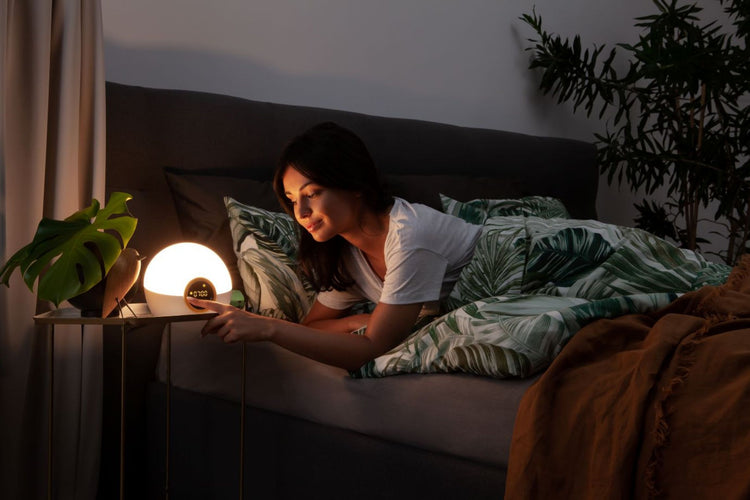
As daylight hours are limited, we may experience lower mood and energy levels and it can feel difficult to stick to our usual routines. R...
Have you been bothered by feeling down lately, struggling to have interest or pleasure in doing things you usually enjoy? While there may be many reasons why you’re not feeling like your normal self, there likely are some key symptoms you’re experiencing that aren’t helping you see the light (excuse the pun!), such as lacking energy, sleeping poorly, or finding it hard to muster the motivation to blaze through your to-do list. As a result, your daily rhythms become more and more out of whack, affecting your ability to function optimally and feel well.

Your body’s circadian rhythm is affected by how much light (natural and artificial) you’re exposed to. Light exposure to the retina is first relayed to the area of the brain responsible for coordinating your body clock (hypothalamus), before descending to your pineal gland (located in the epithalamus). Your pineal gland transduces signals from the sympathetic nervous system into a hormonal signal, which results in the production of hormones such as serotonin (the happy hormone) and melatonin (the sleep hormone).In fact, your body needs serotonin to produce melatonin, as your pineal gland chemically alters one hormone to create the other in a process called synthesis.
Exposure to the right light at the right time of day is key in coordinating biological clock signals. Research shows that bright light therapy in the morning or early afternoon has tangible, physiological effects on our bodies and brains by suppressing melatonin production, thus contributing to enhancing alertness, improving sleep and waking, and boosting serotonin. Opting for dimmer lights with reduced or low blue light content in the evening is recommended to encourage the melatonin levels to rise naturally.

Sunlight naturally enhances mood, energy and alertness by influencing body chemistry. When daylight hours are limited (think: fall and winter) and time spent indoors increases, many people experience fatigue, sluggishness and irritability due to inadequate light exposure. Bright light therapy lamps such as Vitamin L mimic natural daylight, providing a natural alertness, mood and energy boost.
01. Boost mood and energy levels
02. Improve alertness

The right light can also prepare your body for sleep. The built-in sunset feature of Bodyclock promotes a natural sleep response, helping you to unwind naturally. As your room gets dark, the light-sensitive display switches off to help you switch off, leaving you rested and refreshed when you next wake.
Bodyclock Rise 100 is the ideal choice if you're new to this type of light therapy. Bright enough for reading, Bodyclock Rise 100 makes for a great bedside lamp.
01. Wake up refreshed
02. Fall asleep easier